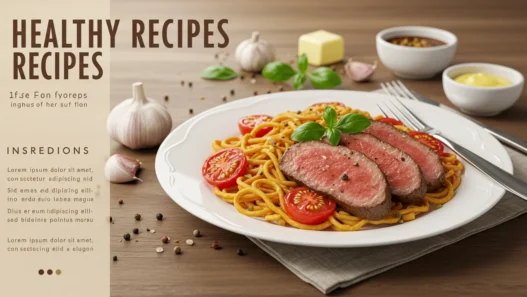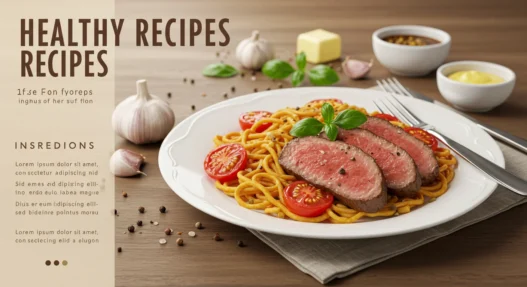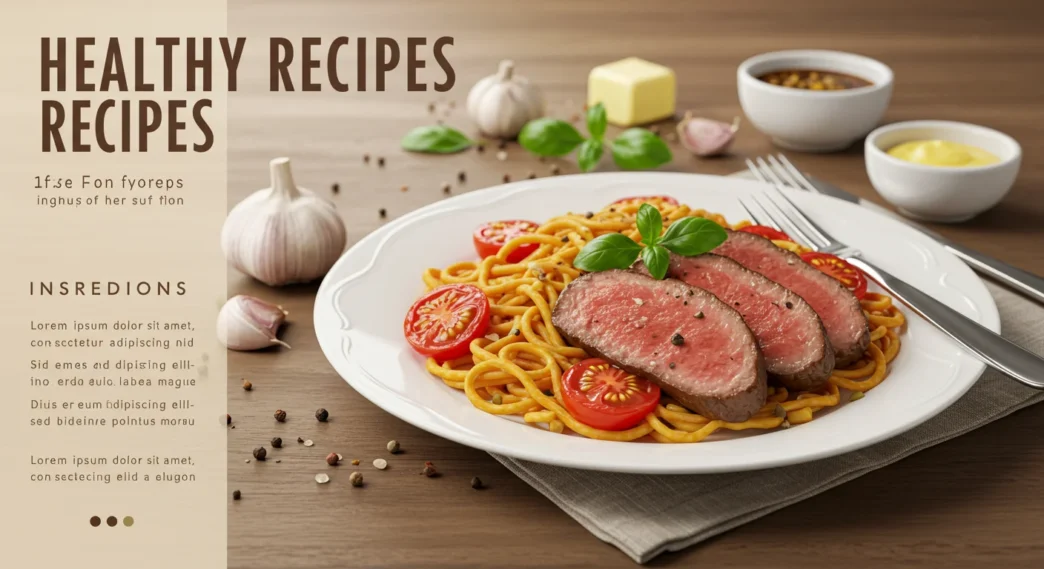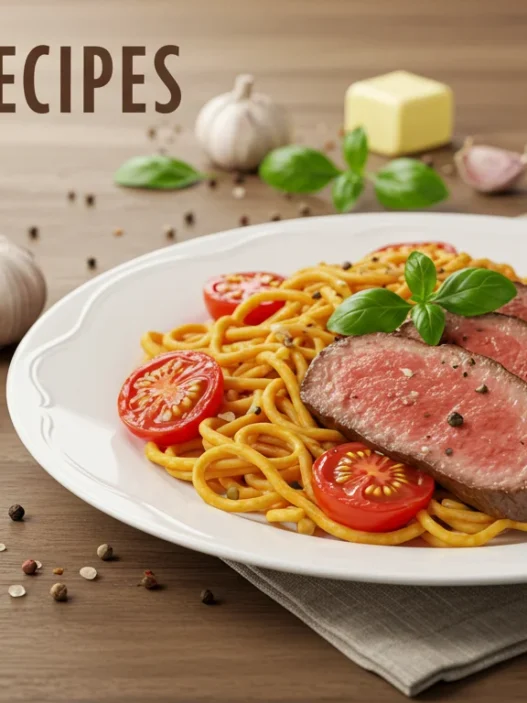Light and Fresh Mediterranean Pasta
I remember the first time I tasted a truly unforgettable bowl of light and fresh Mediterranean pasta—it wasn’t in a restaurant, but in a sunlit kitchen overlooking the Amalfi Coast. My friend Sofia, a spirited local who swore by olive oil as the cure for almost anything, handed me a plate that smelled of lemon zest and basil, glistening with cherry tomatoes and just a whisper of garlic. No heavy sauces. No rich creams. Just vibrant ingredients speaking for themselves.
That moment changed the way I viewed pasta—not as a heavy, carb-laden indulgence, but as something that could be simple, nourishing, and deeply satisfying. Mediterranean flavors, when done right, are bright, herbal, and effortlessly balanced. And when paired with pasta, they can turn a quick weekday meal into something that feels like a holiday on a plate.
Let’s dive into why this style of cooking is so beloved—and how easy it is to bring it into your own kitchen.
The Beauty of Simplicity
One of the most appealing parts of Mediterranean pasta dishes is how few ingredients are truly necessary. You don’t need three types of cheese or hours of simmering sauces. In fact, the lighter and fresher your approach, the more authentically Mediterranean it becomes.
Think: ripe cherry tomatoes bursting with juice, Kalamata olives lending a salty bite, and sweet bell peppers for crunch. Add a few fragrant herbs like parsley or oregano, a squeeze of lemon for brightness, and a drizzle of high-quality extra virgin olive oil—preferably from a small-batch producer like Kyoé or Olio Verde. That’s it. Twirl it all around strands of al dente spaghetti or linguine, and dinner practically makes itself.
A Pasta That Loves Summer
Light and fresh Mediterranean pasta is made for warm evenings and late sunsets. It’s a dish that’s as welcome at a casual backyard gathering as it is at a beachside picnic. One of my go-to versions includes grilled zucchini, roasted cherry tomatoes, and fresh basil, tossed with farfalle and a crumble of feta cheese. A handful of arugula stirred in just before serving adds a peppery contrast that’s unexpectedly addictive.
What I love about this pasta is how flexible it is. You can swap the feta for goat cheese, or go vegan with toasted pine nuts and a spoonful of almond pesto. Anchovies? Capers? A scattering of chopped sun-dried tomatoes? All fair game. The only rule: keep it fresh, and don’t overwhelm the pasta.
Mediterranean Flavor in 20 Minutes
Busy weekday evenings don’t have to mean takeout. The ease with which a mediterranean pasta comes together is honestly its biggest charm. In about 20 minutes—half that, if you chop while the pasta cooks—you can be sitting down with a bowl that feels gourmet.
Here’s a quick favorite from my personal rotation:
Weeknight Mediterranean Penne
- Penne pasta
- Cherry tomatoes, halved
- Garlic, thinly sliced
- Baby spinach
- Kalamata olives, pitted and halved
- Crumbled feta
- Juice and zest of one lemon
- Olive oil, salt, and cracked pepper
Cook the pasta. Sauté the garlic in olive oil, toss in tomatoes until they blister slightly, then wilt in the spinach. Stir in the cooked pasta, add lemon, olives, and feta, and toss everything together with a splash of the reserved cooking water. Done.
It’s humble, honest food—and more than Instagram-worthy.
A Good Glass of Wine Doesn’t Hurt
While not required, serving your light and fresh Mediterranean pasta with a chilled glass of Sauvignon Blanc or a crisp Vermentino elevates the experience. The acidity favors the lemony herbs and the tang of feta, and you instantly feel like you're dining seaside—even if your view is just the herb pot on your windowsill.
Personally, I go for a Provençal rosé when I make pasta with lots of grilled vegetables—the wine seems to mirror the dish’s summery, sun-kissed mood.
Bringing the Mediterranean Home
What I discovered during my time in southern Europe—and every time I recreate those meals at home—is that Mediterranean cooking isn’t just about food. It’s about slowing down. Sitting together, even if it's just with yourself and a good book. It’s about not overworking the ingredients or the moment.
So the next time you're craving something comforting but clean, flavorful but not heavy, reach for those Mediterranean staples. Keep your pantry stocked with olives, capers, lemon, and pasta. When you make a plate of light and fresh Mediterranean pasta, you're not just making dinner. You're capturing a whole way of life—simple, delicious, and full of sunshine.




